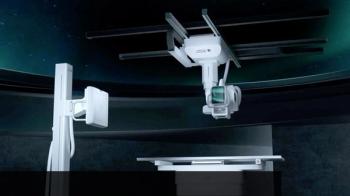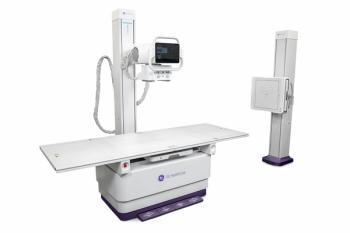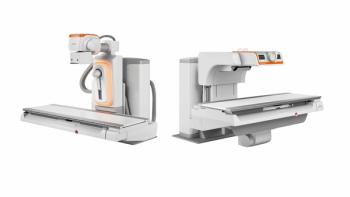
Wuestec partners with Samsung to develop DX-1480 digital x-ray unit
System features CCD design with 16-bit depthA small U.S. x-ray manufacturer has found a big international partner to help it bring to market a new digital x-ray system. Wuestec Medical of Mobile, AL, plans to introduce the system in May at a list
System features CCD design with 16-bit depth
A small U.S. x-ray manufacturer has found a big international partner to help it bring to market a new digital x-ray system. Wuestec Medical of Mobile, AL, plans to introduce the system in May at a list price that is about half what other digital detector developers are charging for their products.
Wuestec was founded in 1990 by Bruno Wuest and sells a range of conventional x-ray systems, including tomography units, C-arms, and radiography-fluoroscopy tables. The company recognized the potential of digital x-ray several years ago and began looking for corporate partners that could help it develop a system, according to Martin Porter, COO and executive vice president of sales and marketing.
While investigating the market, Wuestec ran into Korean industrial conglomerate Samsung, which was also looking for an entry path into digital x-ray. Samsung already manufactured high-performance CCD cameras for satellite and space applications and believed that the technology could be transferred to medical imaging. The two companies collaborated to establish a joint venture R&D firm, called Digix, based in Edmonton, Alberta. Digix took Samsung's CCDs and integrated them into the gantry design of Wuestec's SuperStand 4000 x-ray system.
The resulting system is called DX-1480 and features a digital detector based on Samsung CCDs, with two cameras used in the 14 x 17-inch detector. Unlike most digital x-ray systems that produce 12-bit images, DX-1480 acquires data with 16 bits of depth and a resolution of 3.4 lp/mm.
A key feature of the unit is its versatility: The system's detector is mounted on a rotating arm, enabling it to conduct some 95% of radiography applications, including wall- and table-based exams, Porter said. The unit also uses Wuestec's high-frequency generators.
In addition to CCD technology, Samsung is contributing image management software used to view images collected with DX-1480. The Korean company has developed a Windows NT-based PACS software package called Raypax, and is contemplating bringing the system to the U.S. market. Wuestec is using Raypax SE, a scaled-down version of Raypax, as the viewing workstation for DX-1480.
DX-1480 received FDA clearance in October, and Wuestec displayed the system for the first time at last year's RSNA meeting in Chicago. Production shipments are scheduled to begin in May, with Wuestec selling the system through its network of dealers and distributors. Wuestec will also display DX-1480 in its booth at next month's European Congress of Radiology in Vienna.
When sales begin, Wuestec plans to undercut its larger competitors by offering a complete DX-1480 package, including generator, tube stand, viewing workstation, and other components, for $197,000. That compares with prices in the range of $300,000 to $400,000 for systems developed by companies like GE Medical Systems, Sterling Diagnostic Imaging, and Swissray International. The lower price is possible due to the system's camera design, as well as the fact that Wuestec incorporated the detectors into existing x-ray systems, as opposed to designing a new system from the ground up.
"We didn't see any reason to try to sell it for $400,000, even though we feel we have a better product," Porter said. "This is going to go to mid-sized to small hospitals, clinics, and doctors' offices."
In the future, Wuestec plans to move the digital detectors into other x-ray systems in its product line. The company also plans to develop a version of the detector that can be retrofitted to x-ray systems installed in the field that were manufactured by other companies. Wuestec will probably begin offering retrofit upgrades once it has proved the clinical utility of DX-1480, Porter said.
Newsletter
Stay at the forefront of radiology with the Diagnostic Imaging newsletter, delivering the latest news, clinical insights, and imaging advancements for today’s radiologists.












